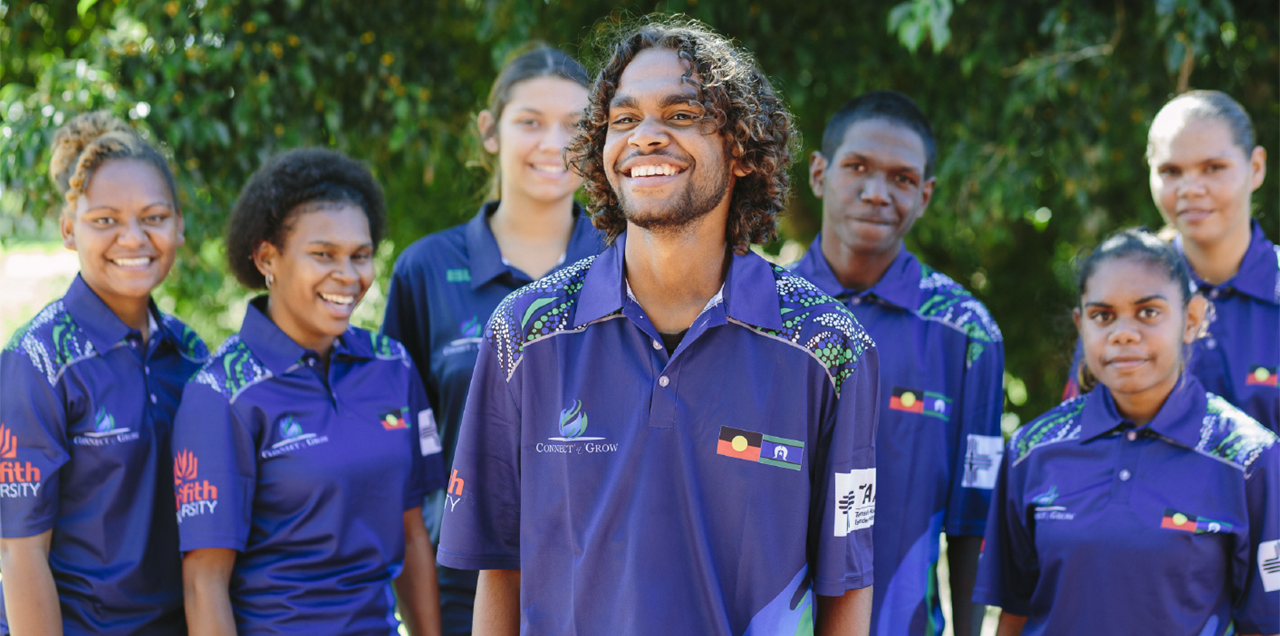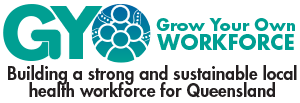Connect ‘n’ Grow & Seed
Foundation Australia
- Outside-in
- Health Sector
- Queensland & Northern Territory

The Challenge
Aboriginal and Torres Strait Islander communities experience poorer health and subsequently have a shorter life expectancy than non-indigenous populations in Australia. However, low educational attainment and few opportunities for Aboriginal and Torres Strait Islander peoples to participate in the health workforce in remote communities across Australia makes it a challenge to attract a culturally-competent health workforce in these areas.
The Solution
- To provide solid foundation skills for students looking to enter the health workforce
- To offer opportunities for students to engage with university, training and employment providers
- To provide opportunities to increase the health literacy of students and enhance their sense of ownership of the major health issues within their communities
Implementation
Connect ‘n’ Grow offer a dual Certificate II in Health Services Assistance and Community Services, followed by specialisation in either a Certificate III in Health Services Assistance or Community Services. The program includes work experience opportunities and Discovery Days, where students can tour health facilities and meet local industry professionals. Aboriginal and/or Torres Strait Islander students are provided with mentoring, career guidance and support by the philanthropically-funded Seed Foundation Australia.
Organisational strategies
- Connect ‘n’ Grow enters into formal agreements with its partner schools detailing governance and responsibility.
- Setting up training infrastructure in schools reduces the Human Resource burden on Connect ‘n’ Grow, making the program more sustainable.
- Wraparound support for students is fully funded and undertaken by a separate organisation, Seed Foundation, supported by a strategic fundraising plan.
- Being responsive to feedback and unexpected outcomes of their model enabled Connect ‘n’ Grow to adapt to student and market needs.
Partnership strategies
- The main partnership is between Connect ‘n’ Grow, which delivers the training, and Seed Foundation, which provides wraparound support.
- Consultation and collaboration with families and communities, and developing strategic partnerships with health services and education providers is critical.
- Seed Foundation is establishing relationships with organisations, businesses and charitable foundations that can provide funding for its programs.
Program design strategies
- The program provides wraparound support from school to training, to university and, ultimately, employment for Aboriginal and Torres Strait Islander students in the health and community services industries.
- The program offers upskilling for teachers in qualification delivery, with a Teacher Accelerated Program (TAP) built in.
- Connect ‘n’ Grow has implemented an online Learner Management System (LMS) that enables students to complete training anywhere, at any time, with a teacher always leading the delivery.
Results
- Over 50 remote communities are involved in the program, and there were 401 graduates in 2017.
- Connect ‘n’ Grow won the Congress of Aboriginal and Torres Strait Islander Nurses and Midwives 2014 Partnership Award.
- There has a been a flow-on benefit of the transfer of health knowledge to local communities, building greater community awareness of critical health issues.
Lessons Learned
- Using culturally-safe models and placing trainees into culturally-safe organisations is critical.
- Ensure that there is sufficient demand to provide employment for graduating students.
- Qualifications offered must provide a range of employment options and flexibility post-graduation.
- Involve non-Indigenous students to avoid segregation.
- Work towards sustainable models that are not reliant on government funding.
- Realistic pathways for 16-17 year olds are critical for success.
- Wraparound support with a case management approach is important for student engagement and success in the program.
- Developing readiness for work is as important as skill development.
REQUIREMENTS FOR
REPLICATION
Do you…
- have partners with a strong understanding of the cultural context of the program?
- have teachers and schools with the skill or potential to deliver Certificate II and III?
- know organisations that can provide appropriate traineeship and cadetship opportunities?
Can you…
- sustain appropriate financial and personnel levels of support to students?
- engage with industry to be responsive to emerging workforce needs?
- offer qualifications and workplace experiences with multiple employment outcomes?
CONSIDERATIONS FOR PROGRAM SCALING
Do you…
- have capacity to provide wraparound support?
- have a sufficient number of culturally-safe organisations to place trainees?
- have capacity to provide work readiness programs?
- have the ability to upskill teachers where needed?
POTENTIAL RISKS
What if…
- the costs of remote delivery are too high?
- there is no alignment between qualifications and job availability?
- the values and philosophy driving the project are not sufficiently understood?
Participants’ personal stories
Read participants’ personal stories and journey through this program…
